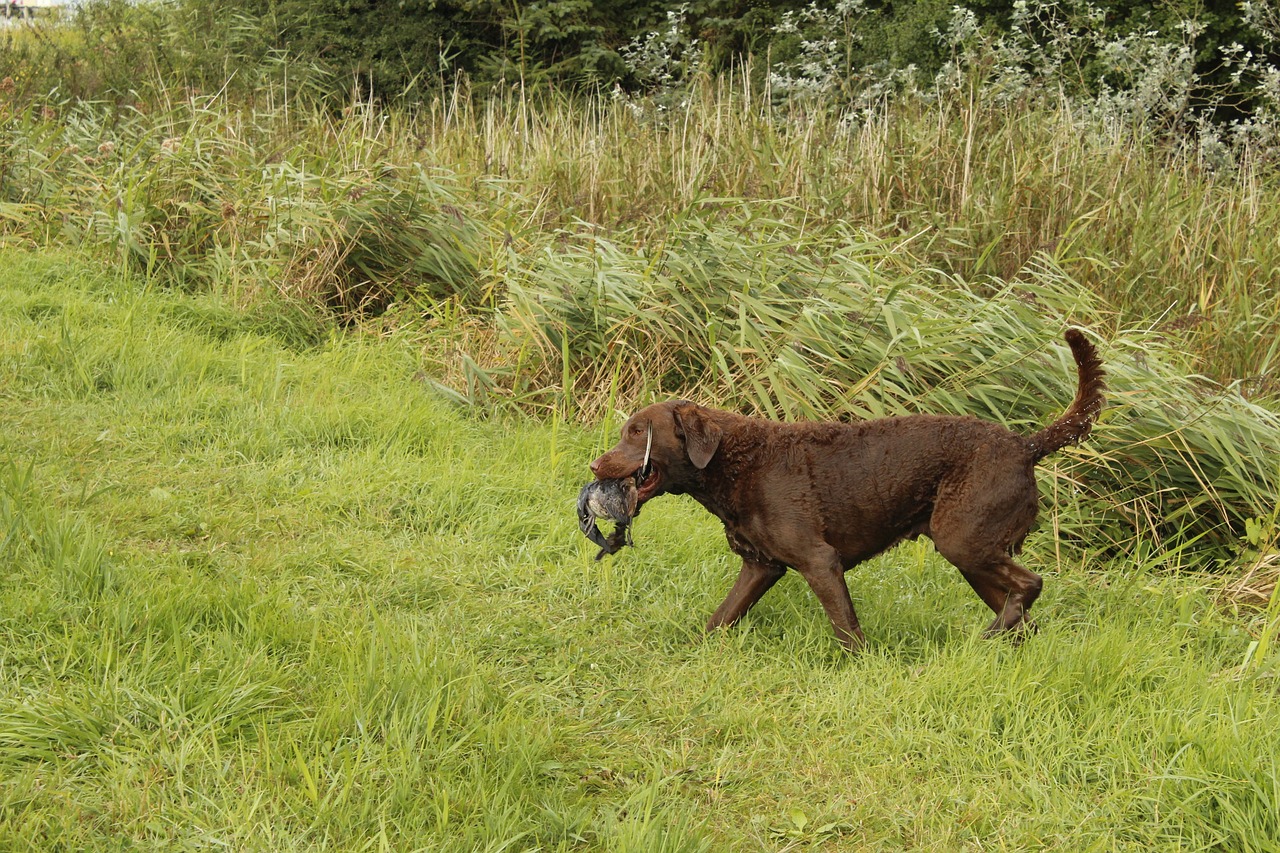The Chesapeake Bay Retriever, affectionately known as the Chessie, is a breed admired for its strength, intelligence, and loyalty. Prospective Chessie owners often inquire about their barking habits, seeking to understand this aspect of their behavior. This article provides a comprehensive examination of the barking tendencies of Chesapeake Bay Retrievers, offering insights into why they bark, how they can be managed, and what owners can expect from this robust and spirited breed.
1. Chesapeake Bay Retriever Barking Characteristics
Chesapeake Bay Retrievers are moderate barkers. They are not known for barking excessively but will vocalize for specific reasons. As a breed developed for hunting and guarding, Chessies use their bark to alert owners to potential dangers or changes in their environment. They may also bark to communicate their needs or during play.
2. Understanding the Triggers of Barking in Chessies
Several factors can trigger barking in Chesapeake Bay Retrievers. These include perceived threats, unfamiliar noises or people, and situations that stimulate their guarding instincts. They may also bark out of excitement, especially when engaging in activities they enjoy like retrieving or swimming.
3. Training Your Chessie to Minimize Unwanted Barking
Effective training is essential in managing a Chesapeake Bay Retriever’s barking. They respond well to consistent, positive reinforcement training methods. Commands like “quiet” or “enough,” coupled with rewards for compliance, can help in reducing unnecessary barking.
4. Chesapeake Bay Retriever vs. Other Breeds: Barking Comparison
Compared to other dog breeds, Chesapeake Bay Retrievers fall into a moderate category in terms of barking. They are less vocal than some working or herding breeds known for their alertness but may bark more than breeds with a more laid-back temperament.
5. The Impact of Socialization on Barking in Chessies
Proper socialization significantly impacts a Chesapeake Bay Retriever’s barking behavior. A well-socialized Chessie is less likely to bark excessively at unfamiliar people or animals. Exposing them to various environments and situations from a young age can help them become more adaptable and less reactive.
6. Health and Wellness: Influences on Chessie Barking
The health and overall well-being of a Chesapeake Bay Retriever can influence their barking. Conditions such as anxiety, discomfort, or boredom can lead to increased vocalization. Regular health check-ups and attentive care are vital to ensure that any health-related causes of barking are promptly addressed.
7. Breed-Specific Traits and Their Influence on Chesapeake Bay Retriever Barking
Chesapeake Bay Retrievers have breed-specific traits that can influence their barking behavior. Their strong protective instincts and history as hunting dogs mean they are naturally inclined to vocalize in certain situations, such as when guarding their home or during outdoor activities.
8. Addressing Separation Anxiety to Reduce Barking in Chessies
Separation anxiety can be a contributing factor to barking in Chesapeake Bay Retrievers. They may vocalize more when left alone for extended periods. Mitigating this issue involves providing adequate exercise, mental stimulation, and sometimes gradual conditioning to being alone.
9. Real-Life Implications of Owning a Chessie: Managing Barking Expectations
Living with a Chesapeake Bay Retriever means understanding and managing their barking tendencies. Establishing a routine, providing sufficient physical and mental exercise, and consistent training can help keep their barking within reasonable limits.
Conclusion
Chesapeake Bay Retrievers are not excessive barkers, but their vocalizations are an integral part of their character. Understanding the reasons behind their barking and addressing them with appropriate training and care can significantly enhance the relationship between a Chessie and its owner. With patience and understanding, owners can enjoy the robust and affectionate companionship of this unique breed.
Frequently Asked Questions About Chesapeake Bay Retrievers and Their Barking Habits

1. Do Chesapeake Bay Retrievers Bark a Lot?
Chesapeake Bay Retrievers are considered moderate barkers. They typically bark for specific reasons such as alerting them to potential threats or during play. Unlike some breeds, they are not prone to barking without a cause.
2. What Triggers a Chesapeake Bay Retriever to Bark?
Common triggers for barking in Chesapeake Bay Retrievers include perceived threats, unfamiliar people or animals, and excitement during activities like hunting or retrieving. They may also bark to communicate their needs or in response to environmental stimuli.
3. Can Training Reduce Barking in Chesapeake Bay Retrievers?
Yes, training can effectively reduce unnecessary barking in Chesapeake Bay Retrievers. They respond well to positive reinforcement and consistent training. Teaching them commands such as “quiet” and rewarding them for silence can help manage their barking.
4. How Does the Barking of Chesapeake Bay Retrievers Compare to Other Breeds?
Compared to other breeds, Chesapeake Bay Retrievers are moderate in their barking habits. They are less vocal than some working or herding breeds but may bark more than naturally quieter breeds. Their barking is usually purposeful rather than constant.
5. Does the Age of a Chesapeake Bay Retriever Affect Its Barking Habits?
The age of a Chesapeake Bay Retriever can influence its barking habits. Younger dogs and puppies may bark more as they explore and learn, while older dogs tend to bark less and are more discerning about when they vocalize.
6. Can Barking Indicate a Health Issue in Chesapeake Bay Retrievers?
Excessive or sudden changes in barking behavior can sometimes indicate health issues in Chesapeake Bay Retrievers. It’s important to be attentive to other signs of discomfort or changes in behavior and consult a veterinarian if there are concerns about their health.
7. How Important is Socialization in Managing a Chesapeake Bay Retriever’s Barking?
Socialization is very important in managing a Chesapeake Bay Retriever’s barking. Proper socialization from a young age can help prevent excessive barking, especially at unfamiliar people or in new environments. It helps them become more confident and less reactive.
8. Does Separation Anxiety Affect Barking in Chesapeake Bay Retrievers?
Separation anxiety can affect barking in Chesapeake Bay Retrievers. They may bark more when left alone if they feel anxious or stressed. Addressing separation anxiety with proper training and providing mental stimulation can reduce this type of barking.
9. What Should I Avoid When My Chesapeake Bay Retriever Barks Excessively?
When your Chesapeake Bay Retriever barks excessively, avoid yelling or punishing them, as this can exacerbate the behavior. Instead, try to identify the cause of the barking and address it through training and environmental management.
10. Are Chesapeake Bay Retrievers Quieter in Certain Environments?
Chesapeake Bay Retrievers may be quieter in environments where they feel secure and have their needs met. In familiar surroundings where they receive adequate exercise and mental stimulation, they are less likely to bark excessively. However, in new or stimulating environments, they may bark more in response to the novel stimuli.

9 Comments